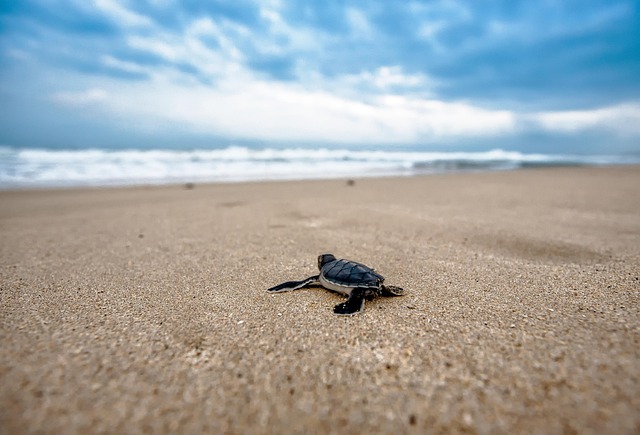SpaceX Debris Threatens Endangered Turtles on Mexican Beach

The shores of Bagdad Beach in northern Tamaulipas, Mexico—home to the endangered Kemp’s ridley sea turtles—are now facing a new threat: rocket debris. Following multiple launches from SpaceX’s Starbase facility just across the border in Texas, fragments including melted plastics, aluminum scraps, and industrial adhesives have been washing ashore.
Since late 2024, a small NGO called Conibio Global has taken it upon itself to collect and document the debris. Founder Jesús Elías Ibarra, who also leads the organization’s Marine Turtle Program, said he personally witnessed a SpaceX launch last November that led to visible debris falling into the Gulf of Mexico. A coordinated recovery followed within hours, involving boats and helicopters. But according to Ibarra, subsequent launches—including one in May—left behind far more debris, with little to no recovery effort observed.
“In just 500 meters of shoreline, we collected over a ton of waste,” said Ibarra. “And that’s just a small portion of the 40-kilometer stretch we monitor.”
Some of the material retrieved included plastic foams, adhesive residues, aluminum panels marked with the SpaceX logo, steel piping, and rubber-like substances. Ibarra warns that much of this debris poses serious risks to wildlife, particularly sea turtles that may accidentally ingest it.
Environmental and Legal Concern
While SpaceX publicly stated on June 26 via social media that it had provided cleanup support and requested assistance from local authorities, Conibio claims they have had no direct contact with the company. Instead, they handed debris over to Mexico’s environmental protection agency, PROFEPA. SpaceX also maintains that their testing showed no biological or toxicological dangers posed by the debris.
Yet skepticism remains high. Experts like Marlon Sorge of The Aerospace Corporation warn that space debris can contain hazardous chemicals and should not be touched without proper training.
President Claudia Sheinbaum acknowledged during a press briefing in June that pollution from rocket launches is a valid concern and promised that the Mexican government would examine the issue under international law. Legal action may be considered if necessary.
Ibarra also expressed concerns that the vibrations from rocket launches are compacting sand along the beach, making it difficult for hatchlings to emerge from nests. At least 300 baby turtles have reportedly died because of this. Additionally, there have been reports of property damage and burned vegetation near the Rio Bravo following recent rocket activity.
Ongoing Cleanup and NGO Struggles
The cost of cleanup for Conibio Global has exceeded $26,000, covering everything from fuel to pay for workers and cleaning supplies. During one cleanup mission, Ibarra reported finding a large tank measuring around 4 meters in length and a 5kg stainless steel pipe. Mexican Navy personnel joined them during this operation.
Despite government collaboration in recent weeks, the organization claims that during one incident, SpaceX drones filmed their cleanup efforts without consent—a claim the company has yet to address.
The Government of Tamaulipas has expressed a desire to maintain a cooperative relationship with SpaceX. Governor Américo Villarreal even visited Starbase last November, signaling openness to collaboration.
Still, Ibarra emphasized that despite some large fragments being cleared, smaller debris remains buried under the sand and tides. “It’s still there,” he said. “It may not be visible now, but eventually, it needs to be removed.”









